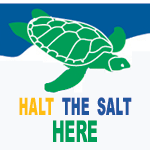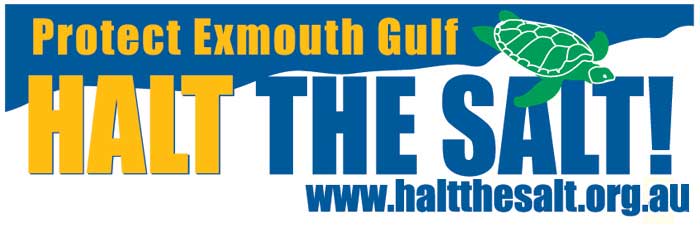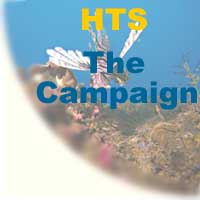|
|
 |
|
The Campaign - CommentsFind other ways to help the Halt the Salt campaign.
Submission of the month - February(reproduced with author's permission) When you fill out the submission you are given the opportunity and plenty of space to add your own comments if you wish. Our thanks to those who have done so. PRIVATE SUBMISSION – Simon Reeve: Sydney Western Australia owes much to the mining industry and the spirit of the entrepreneur. We‘ve been blessed with resources that most nations, let alone states, can only dream of. The recent growth has seen our state’s economy ride a Margaret River sized wave of prosperity. This isn’t an issue about the worth of mining. It’s a question of balance and good sense. Amid the euphoria, the billions of dollars flowing in, it’s imperative we stop and think of the big picture. There’s a dramatic irony about the closing date for these public submissions. The terrible damage unleashed by Cyclone George on the north-west, underpins just one of many reasons this project should never go ahead. For all our incredible mineral wealth, we also possess some of the last great tracts of true wilderness on the planet. After returning from living with my family in Botswana a few years back, we were desperate to locate a small piece of Australian wilderness in which to hang our hats and thongs. At Exmouth, on the shores of the western gulf, we found it. The beauty of the region and the abundance of the natural world, won us in an instant. We found a place we hope our kids will appreciate and maintain a connection with through their lives. It is rare and special. I‘m very proud of the fact I come from WA, something I remind friends and colleagues in Sydney about all the time. Growing up we could (and still can) drag a net along the banks of a clean city river and stuff ourselves with prawns on hot summer nights. We can swim or fish pristine beaches up and down the coast, where barely another footprint can be found. When I was a kid, progress in our state was all about digging or blasting or refining. Today thankfully, we know better. We understand there are places on earth where our responsibility is as caretakers, not just takers. Exmouth Gulf, east, west, north and south, is such a place. At times reading the Straits proposal for the solar salt plant, I felt I was thumbing through plans for an extension or alteration to the kids’ playground at the local school. The understated, folksy language had me scratching my head at first. Then it made me angry. Trying to reconcile terms like “little impact” and “expected to be negligible” with the scale of a city sized production facility is impossible. If my high school science teachers were marking the proposal document, they’d scratch in big writing - sweeping generalisations, little or no proof. Of course the company, paying for its research, will produce papers that support its idea. Heck, that’s a surprise. They can seduce and baffle us with all kinds of claims and sugar coat the words to make this appear as attractive as they wish. Instead, they should have saved the money. A project of this nature and scope simply has no place in the eastern gulf to begin with, end of story. Nature, especially in an extreme environment like Exmouth, has a habit of mocking dubious charts and models. Take a peek at the wonders of Google earth, as I often do on our computer with my kids. Sweep down over the eastern Gulf and you’ll be awe struck by the myriad waterways. Even a child can see how this delicate, breathtakingly beautiful system of inlets, channels, tiny islands and mangroves is intricately linked and connected with the land. When I first visited Exmouth, I imagined
how the area would have been stuffed up and exploited if it was
on the other side of the country, where I now live. I thought smugly
that at least in WA, these days, we didn’t make those mistakes.
At best, the Yannarie project is an ill-conceived punt on a long shot. In reality, it would create a grotesque ecological time bomb on Exmouth’s doorstep. I can imagine at some point a view was advanced in a company meeting that the eastern gulf country is worthless anyway, that no one barring a few “greenies” would really care what happened over there. Ningaloo might indeed be the showcase,
but so many of the artists, designers and bit players, are backstage.
Compromise the backstage area and the theatre closes. You can’t
bask in the glory of one and reject the other. Tourism is in its infancy in Exmouth. Handled correctly, the region can become anything the people and the government choose. The Western coast is the magnet, but the eastern Gulf and its great diversity, is a resource of extraordinary potential. I can envisage simple, elegant tented camps (assembled and broken down in days) on the edge of the channels that fly in high paying tourists for an exclusive wilderness experience. Jack’s Camp, in the remote Makgadikgadi pans in Botswana is a wonderful model. I know I don’t speak for everyone in the gulf country on this matter. However I feel passionately that a decision to move ahead on this would be disastrous for the region. A few jobs in a high-risk venture of appalling proportions must be weighed against a potentially catastrophic long-term effect for Exmouth. It’s not merely environmental
concerns that should alarm us. Once built, there’d be no turning
back, no second chances. I worry that in the current poisonous political climate in WA, such a project may slip through the confusion relatively unnoticed. It would be painless enough to fly under the radar, sign off and say, yep, let’s go with it. Take the cheque and to heck with the consequences. But a decision to advance this will carry a far greater price than a ministerial scalp. Here’s the rub. We can’t mix the message about this incredible region, indeed about our state. You can’t say come and see our unique marine bounty on one side and our ungodly salt plant on the other. The Real Thing, so cleverly and proudly sold to the world, does not include tankers and barges and an industrial scar visible from space, in a region that soon will hopefully be accorded world heritage status. The marine riches are equally, if not even more important, in the eastern gulf. We can’t stand – holier than thou – and say to Japan how dare you kill whales – to Malaysia and Indonesia how can you log old growth rainforests – and proceed to build (in a sensitive environment) a vast monument in Western Australia to what … industrial salt production? During the Cold War, the world joked about the Soviets condemning internal critics to the salt mines. In this case, a green light on the salt mine would condemn us all to a bleak future for Exmouth. There are great mining towns in Western Australia ... Kalgoorlie, Karratha, Newman, Port Hedland. Exmouth is not a mining town, nor should it ever be. It’s identity lies in its untouched beauty. A procession of large tankers, some ageing, rusting vessels and a fleet of barges ferrying industrial salt, don’t belong. There is just too much at stake. Even if it were merely whales and dugongs being affected, there’d be a powerful case to argue against this project. But there’s so much more in the Gulf. Rare mangroves, turtles, prawns … an entire ecological system. When Mexico’s president, under colossal international pressure, rejected a similar salt plant proposal for the San Ignacio Lagoon, his government showed wisdom and foresight. Ironically that announcement came exactly 7 years ago, in March 2000. The rare gray whale was the poster child for the campaign that ultimately sunk the project. We need the same wisdom and foresight from our own government. To use the phrase that pops up in the document, I’m hoping the chances of this going further are expected to be negligible. I write this because sometimes as a society, we have to try and see the big picture. Make decisions our kids will thank us for. In the Straits proposal first page it states … it is useful if you indicate any suggestions you have to improve the proposal. I have one for the WA government. For the sake of the future of this remarkable place, just say no. Simon Reeve
|

![]()

![]()

Halt the Salt Campaign - Web Manager:
Dave Graham, Web hosting: ozup.com
Images copyright Wags and
Kelly
Halt the Salt Privacy statement


